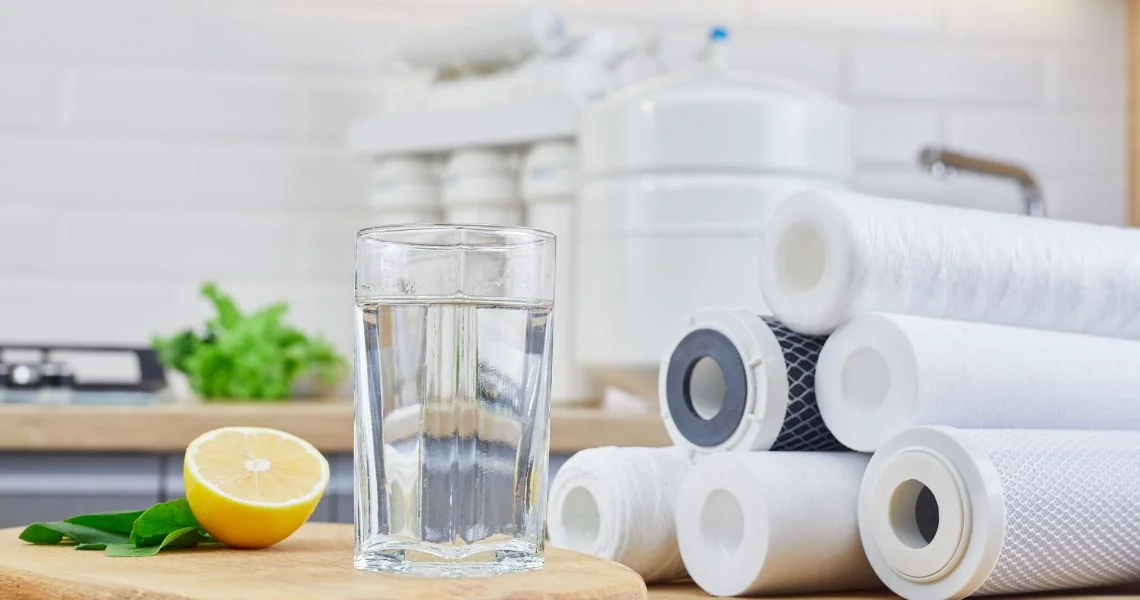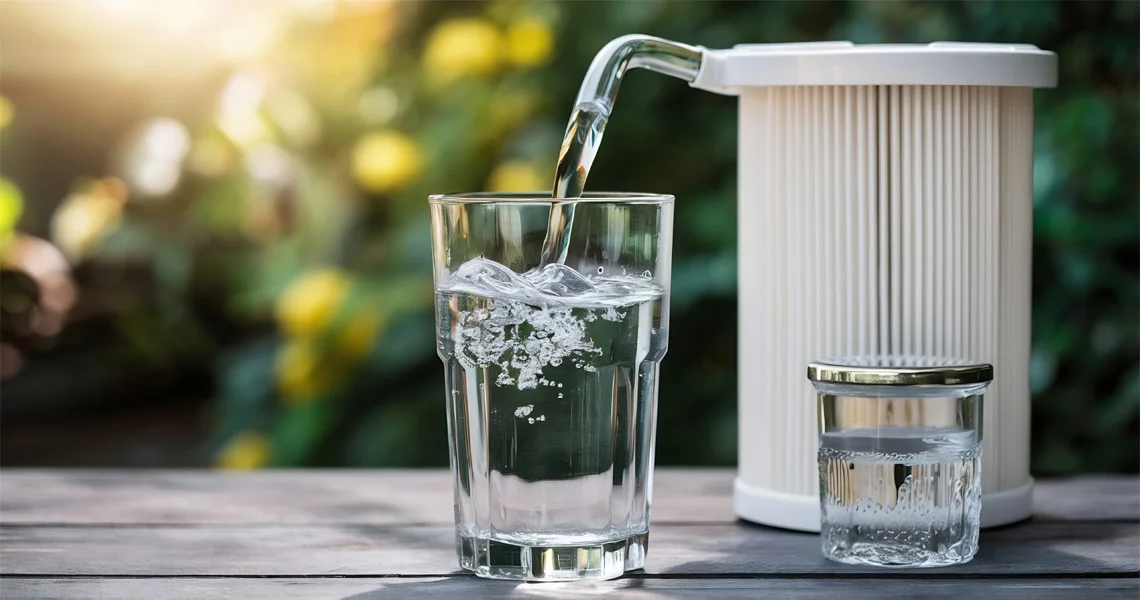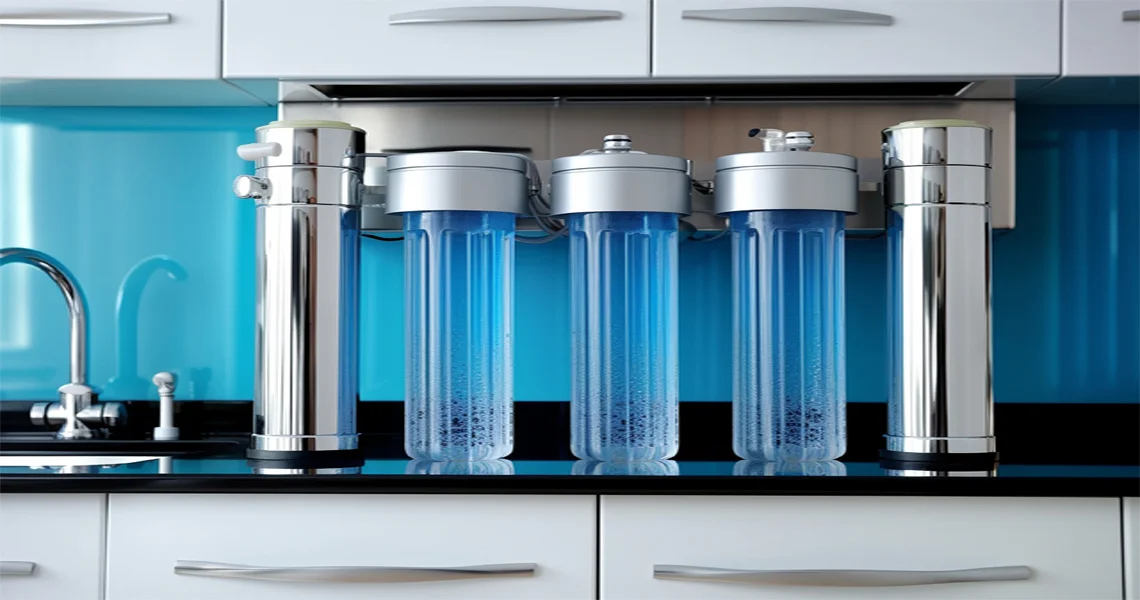Nowadays, with a more conscious approach to the environment, many homeowners are asking: What is the most eco-friendly water filtration system? You desire clean water, yes–but also reduced waste, reduced energy consumption, and sustainable materials. In this blog, we are going to compare water filters, whole-home water filtration, and whole-home water softener methods. We will point out what to consider and refer you to Wellness Water Purification solutions that fit the green lifestyle.
Why an Eco-Friendly Water Filtration System Matters
Each drop of water that you filter or soften has environmental implications. Ineffective design can lead to wastefulness, high consumption, or high disposable components. The eco-friendly system must:
- Apply minimal power (minimal pumps or passive filtration).
- Produce the least output (Less wastewater, reduction of cartridge changes).
- Recyclable components that are durable should be used.
- Cater to the entire house as opposed to devices in bits.
When homeowners inquire about the best water filtration system, they often mean the best in terms of water quality and environmental impact. Let’s explore key options.
Comparing Approaches: Water Filters vs Whole Home Water Filtration vs Whole Home Water Softener
Point-of-Use Water Filters (for drinking, kitchen)
These are filters attached to faucets, under the sink, or countertop units. They often use activated carbon, ceramic, or reverse osmosis membranes. They are effective for producing high-purity drinking water with relatively low waste if well designed.
Pros:
- Lower initial cost
- Easy to install
- Localized filtration, so less membrane area is needed
Cons:
- Only filters water at that location
- Not ideal for showers, bathrooms, or appliances
- Some RO systems waste water
If your primary concern is drinking water, a good water filter unit may suffice. But if you want to treat all water entering the home, consider a whole-home water filtration system.
Whole Home Water Filtration (Point-of-Entry Systems)
Whole-home water filtration systems treat all incoming water at the main inlet. It provides filtered water to all of the taps, showers, and appliances to minimize chlorine, heavy metals, microbes, and sediment. Wellness Water Purification has a product line of Whole House Water Filtration.
Benefits of whole home filtration:
- Resists scale and contaminating appliances and plumbing.
- Enhances the quality of water in all places (not only drinking water)
- Minimizes the use of several filters.
- Have the ability to lower the use of detergents and soaps.
The system of wellness goes even further by adding filtration, mineral reintroduction (remineralization), and softening/alkalization to maximize the quality of water.
Whole Home Water Softener (or Combined Systems)
A whole-house water softener is a system that focuses on the hardness minerals (calcium, magnesium) and can be complemented with filtration systems. Filtration + softening is the most optimal compromise in most eco-friendly homes. The systems of wellness are sold under the name of Water Filtration and Softening.
Water softeners lower the scale and increase the life of appliances, and on the other hand, you do not use as much soap. However, other softeners operate on salt and have to undergo regeneration processes, resulting in brine wastes. When it comes to a green home, seek out salt-free or low-waste softening methods or systems that have fewer regeneration cycles.
What to Look For: Criteria for Eco-Friendly Filtration Systems
When choosing which water filtration system is best for your eco home, consider these factors:
- Efficiency and Waste Ratio: Prefer systems that waste little water. Reverse osmosis systems can waste 3–4 times the volume filtered if poorly designed. Whole-home filtration systems typically do not waste water in that way.
- Energy Usage: Some filtration or softening devices require pumps or periodic backwash cycles. Select systems that operate primarily using passive flow or minimal power.
- Filter Longevity and Reusability: Eco-friendly systems use long-lived cartridges or components that can be cleaned or replaced infrequently. Reduce single-use plastics and disposable parts.
- Material Sustainability: Stainless steel, high-grade polymers, or safe composites are preferred. Avoid systems built with cheap plastic that may leach or wear out.
- Combined Treatment (Filtration + Softening): A combined system addresses both contaminants and hardness. If a whole home water filtration system also includes softening, that can reduce the need for a separate whole home water softener unit.
- Certifications, Testing & Warranty: Look for independent certifications (e.g., NSF, WQA) and third-party testing. Wellness Water Purification emphasizes testing and certified performance.
- Maintenance & Operating Costs: Calculate the total cost of ownership, including replacement filters, regeneration salt (if any), electricity, and servicing. A system may appear cheap initially, but it costs more in upkeep.
- Capacity and Flow Rate: Ensure the system can handle your home’s peak demands. If the system chokes during high use, people may bypass it (defeating the point).
Steps to Choose the Best System for Your Eco Home
- Test your water: Determine what contaminants are present (hardness, chlorine, heavy metals, microbes).
- Define your priorities: Decide if your focus is drinking quality, appliance protection, skin health, or all of the above.
- Match system type to priorities: If contamination and hardness are both issues, a hybrid whole-home system may be best.
- Evaluate costs over lifecycle: Compare upfront, maintenance, waste, and energy.
- Read product and installer reviews: Look for references from eco-homes or sustainability forums.
- Plan for future expansions: Perhaps you want a rainwater harvesting tap or purification system in the garden; your system should adapt.
- Work with a reputable supplier: Wellness Water Purification is positioned to offer full-spectrum systems for the whole home.
What Is Best for an Eco-Friendly Home?
Given all these criteria, many environmentally minded homeowners conclude that a whole home water filtration system that also softens (salt-free or low waste) is the best balanced choice. It ensures clean, safe water in every faucet, reduces chemical and energy waste, and protects appliances.
When someone asks which water filtration system is best, the answer often becomes: the one that treats all water, wastes little, and avoids redundant point filters. In most eco homes, using a whole home water filtration system with a minimal whole home water softener or hybrid system offers the most benefit.
Wellness Water Purification’s offerings aim to deliver precisely that: systems that filter, soften, remineralize, and alkalize for whole-home coverage.
However, for drinking water, you may still pair with a high-grade water filter unit (like the ones listed above) to get exceptionally pure water at selected taps.
Don’t settle for average water. If you’re building or upgrading an eco-friendly home, take action now. Visit Wellness Water Purification to explore their Whole House Water Filtration System and Water Softener options. Request a free water assessment to see which system fits your needs. Invest once—enjoy cleaner water, lower waste, and a greener home for years to come.
Choose wisely. Choose sustainable. Your water system should be as eco-friendly as your home. Contact us.




